Montessori Middle School
Cedar Campus (Grades 7-8)
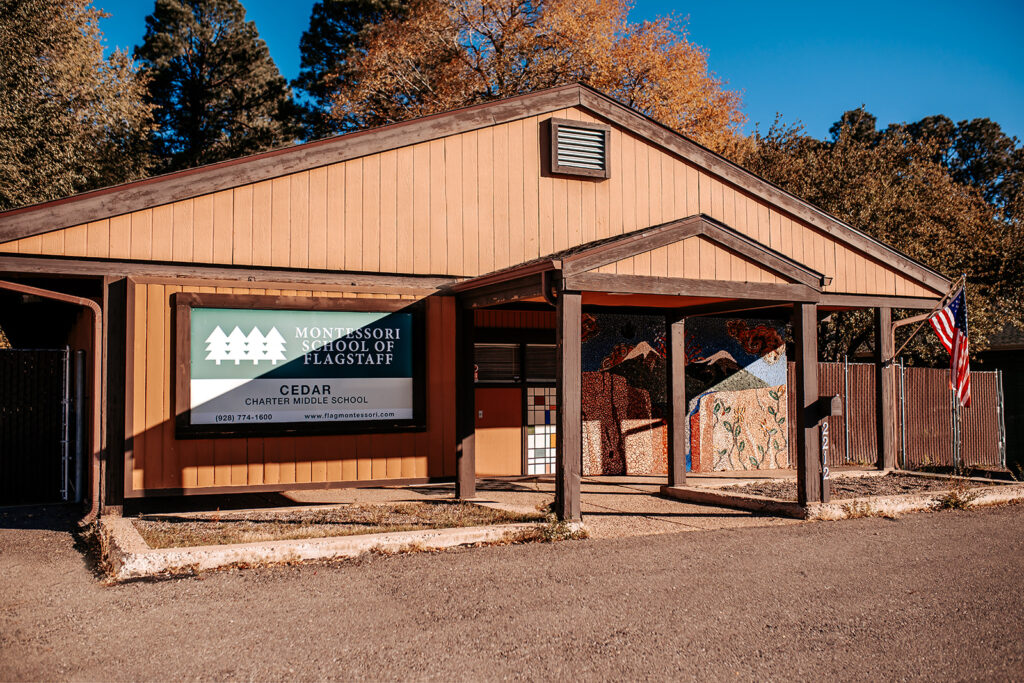
The Montessori Charter School of Flagstaff Cedar Campus is a free public charter school. It serves students in 7th and 8th grades. Our middle school program exceeds the curriculum guides of the Arizona State Standards, while continuing to adhere to the school philosophy of “meeting the needs of the child.” Our small student body is by design, so that every student has a personal educational experience which allows them to learn self-advocacy skills as well as how to collaborate with peers and teachers.
The program is an integration of the current research in human development, the trends and issues of education, and Montessori philosophy. The program is designed to foster opportunities for adolescents to become self confident and gain self-knowledge, to become a functional member of a community, to learn adaptability, to become academically competent, to develop a life-long love of learning, and to create a vision of their personal future. Empowering early adolescents is the backbone of the program.
The Montessori Middle School Program
Dr. Elizabeth Coe, past president of the American Montessori Society, using years of research completed by the University of North Carolina, developed a completely new educational model based on the specific needs of this age group. The model is founded on a fundamental principle: The key to development is freedom with responsibility and respect.
Dr. Montessori spoke of a center for study and work where adolescents could safely transform into adults. Our model focuses on helping them find where their talents intersect with the world’s needs. Not only does our program promote academic excellence in all core subjects, but it also gives students practical experience in a variety of community settings.
The Curriculum
Seventh and eighth grade students are taught together in a 2-year program. Each year is divided into five theme-based cycles, each 6-7 weeks long. All subjects are integrated into the theme of the cycle. Throughout each cycle students participate in a “Community Connection” and a “Going Out”. The last week of each cycle is generally reserved for our “Immersion” trips.
Year A
Cycle 1: Connections
Cycle 2: Explorations
Cycle 3: Identity
Cycle 4: Systems
Cycle 5: Interdependence
Year B
Cycle 1: Forces
Cycle 2: Structure
Cycle 3: Power
Cycle 4: Change
Cycle 5: Balance
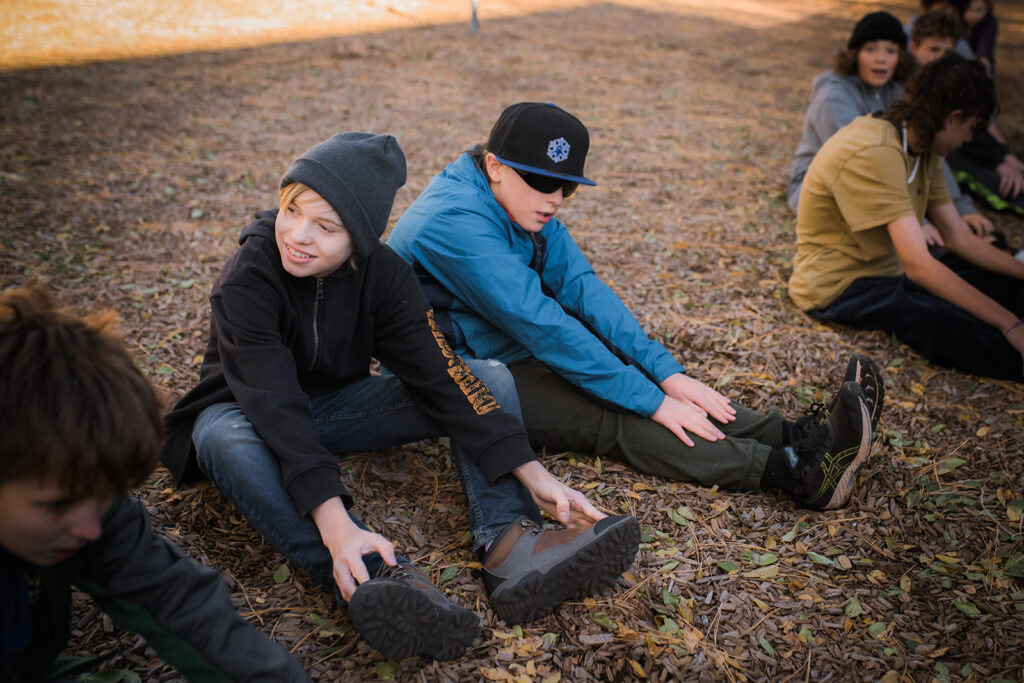
The Early Adolescent is:
- an active, self-directed learner
- a vital member of the class, school, city and global community
- a vital member of the parents-teachers-student team
- responsible for keeping commitments, being honest and respectful
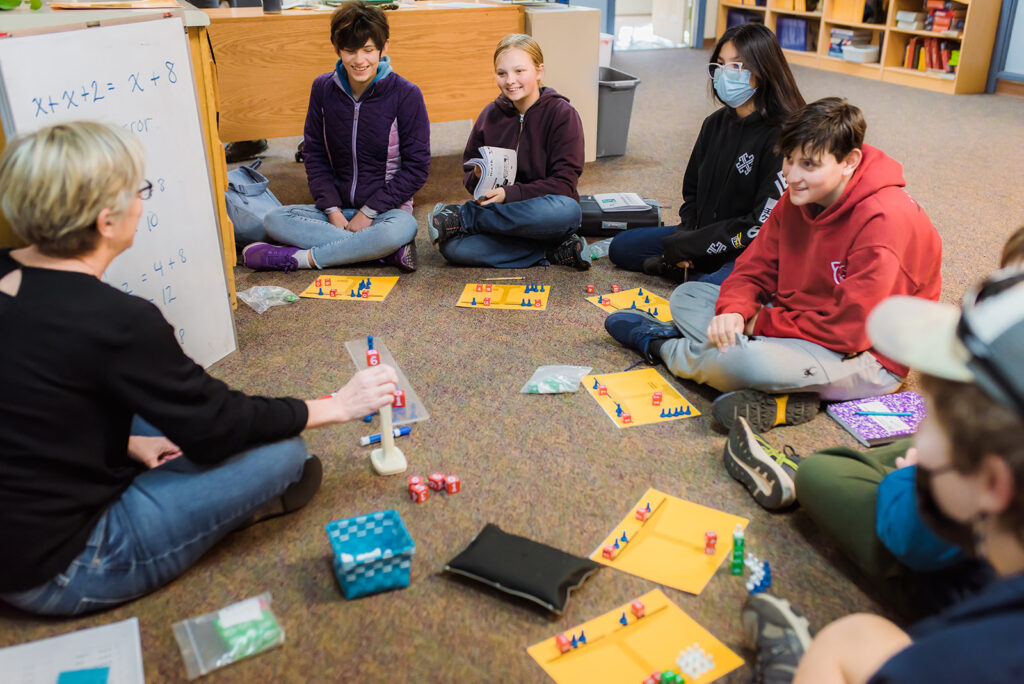
The Teachers
are:
- facilitators for learning
- consultants for the students
- creators of a positive climate for learning
- communicators with parents and community
- role models
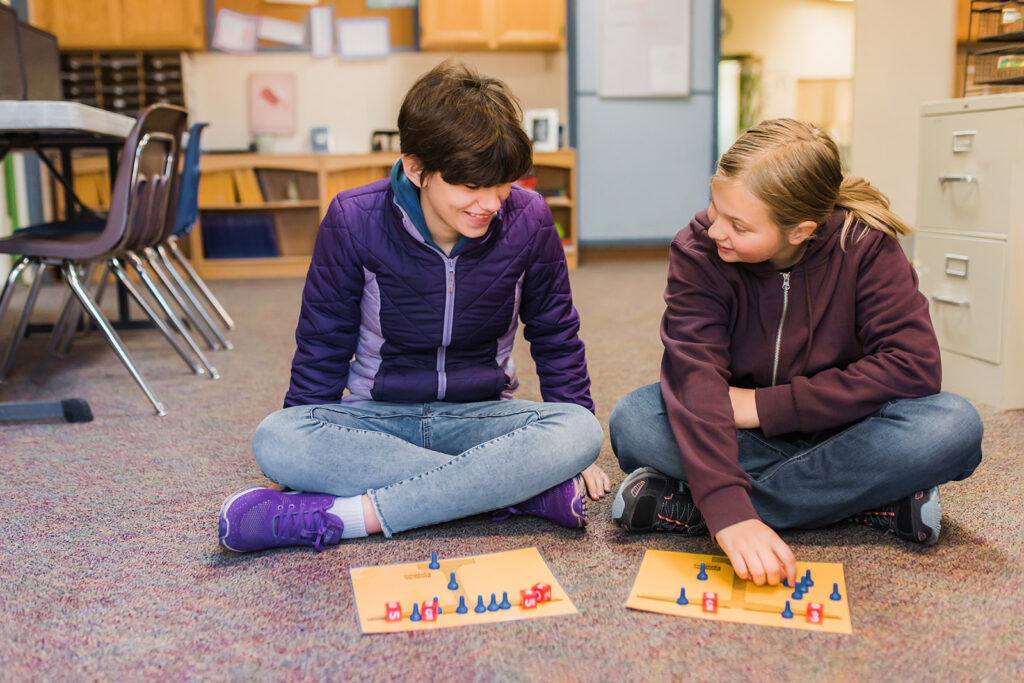
The School Structure offers:
- a learner-centered environment
- a developmentally–responsive curriculum
- parents-teachers-student partnership
- multi-aged grouping of 12-15 year olds
- large blocks of learning time
- peer and cross-age teaching
The curriculum instruction includes:
- transdisciplinary themes
- learning how to learn strategies
- personal learning plans
- mastery, coaching, and exploratory activities
- long term cooperative learning projects
- sense of community and social interaction with peers
- meaningful and challenging work
- activities for self-expression, self-knowledge, and self-assessment
- activities that value all nine intelligences and a variety of learning styles
- activities to foster independence
- school and community service projects
- outdoor exploration activities
Six Integrated Components
The Montessori Middle School experience features six integrated components to address all of the needs of the adolescents during their delicate transition to adulthood:
Academic
Math, social world, natural world, personal world, literature, writing, grammar, vocabulary, etymology, spanish, art, music and physical education

Entrepreneurial
Students run a snack/food business and fundraise for trips throughout the year

Service to community
“Community Connections” around the Flagstaff community from volunteering at a food bank or humane society to picking up trash

Apprenticeship
Opportunity to job shadow and present on the experience

Adventure
Hiking, camping, and lots of time spent outside enjoying the region’s natural beauty and historical significance, includes “Going Outs”
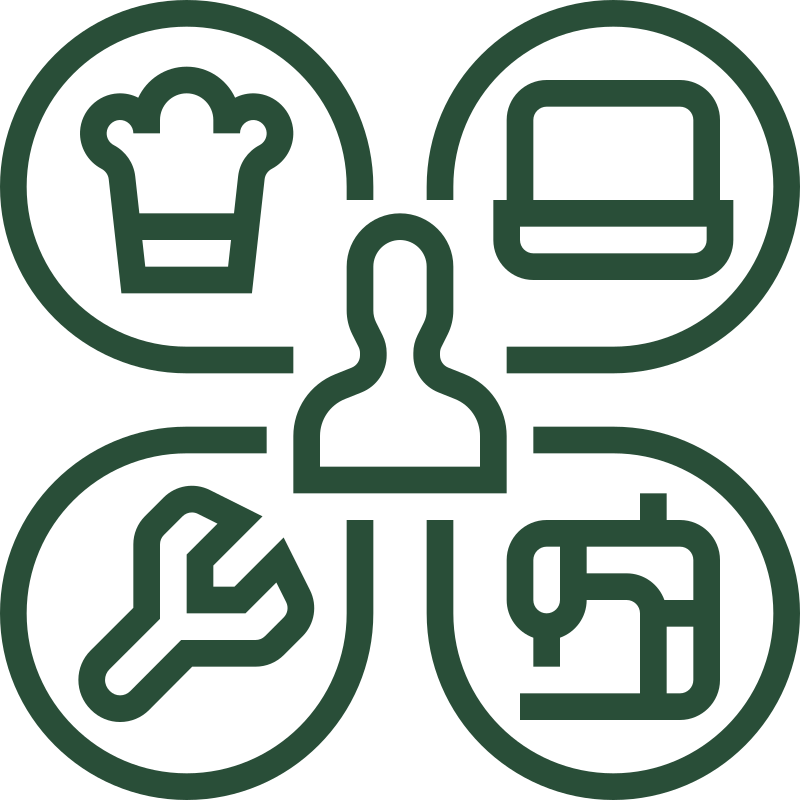
Immersions
Overnight camping trips, exploration of local environment, end of the year river trip
By addressing the social and emotional needs of the adolescent, s/he can better focus on academic endeavors. This deliberate approach to adolescent education provides the experiences needed to expose our young adults to many valuable life lessons where they can connect with peers and bond with supportive adult teachers.
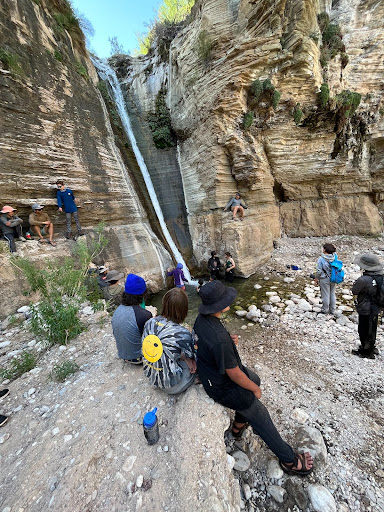
Student-Led Conferences
Twice a year the students lead a detailed conference with their parents. The conference includes an overview of their academic accomplishments that focuses on their strengths, weaknesses and their plan for improving. This manner of presentation enables the adolescents to interact with their parents in an adult manner while both embracing and displaying their ownership of their own educational journey and its direction.
By utilizing this method we purposely break away from the traditional parent-teacher conference and place the responsibility for progress reporting in the hands of each student. It is a maturing time and it provides an excellent means of establishing a higher plane of communication between each student and his or her parents. This step in developing an adult-to-adult relationship between adolescent and parent has proven itself nothing less than remarkable.
Contact us today to learn more about our program or to schedule a tour of our Flagstaff middle school campus.
And so we discovered that education is not something which the teacher does, but that it is a natural process which develops spontaneously in the human being. It is not acquired by listening to words, but in virtue of experiences in which the child acts on his environment. The teacher’s task is not to talk, but to prepare and arrange . . . a special environment made for the child.
—Dr. Montessori, The Absorbent Mind
American Montessori Society
As an American Montessori Society affiliate, we are nonsectarian, family-oriented, and we build close working relationships among our students, parents, staff, and community members. In addition to our tuition-free charter school (kindergarten, elementary, and middle school), we also offer tuition-based preschool, after school, and summer programs.
The American Montessori Society’s Pathway of Continuous School Improvement is a school-quality initiative available to every AMS member school that helps schools demonstrate and articulate their commitment to quality Montessori education.
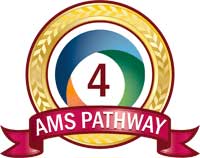

American Montessori Society
As an American Montessori Society affiliate, we are nonsectarian, family-oriented, and we build close working relationships among our students, parents, staff, and community members. In addition to our tuition-free charter school (kindergarten, elementary, and middle school), we also offer tuition-based preschool, after school, and summer programs.
The American Montessori Society’s Pathway of Continuous School Improvement is a school-quality initiative available to every AMS member school that helps schools demonstrate and articulate their commitment to quality Montessori education.
